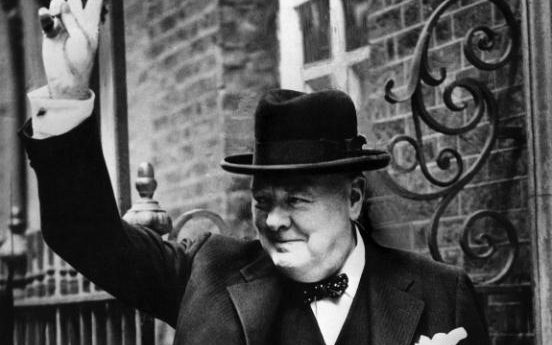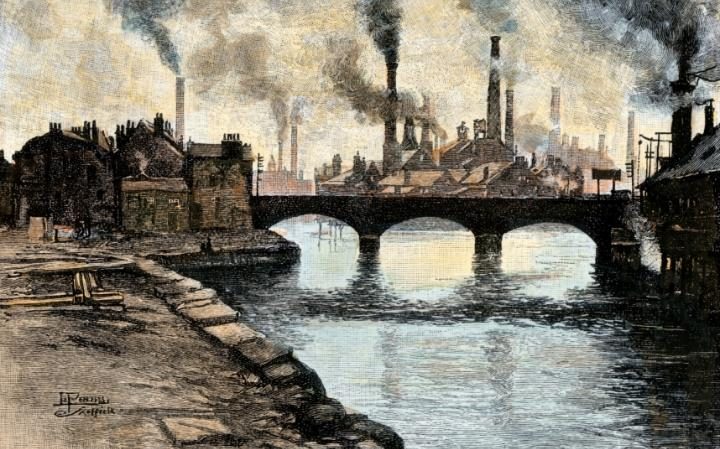With Britain preparing to rebuild trade links with its former empire post-Brexit, does it really need to apologise for its imperial past? Or could it take new pride in what it did to modernise and democratise the world?
Britain's Empire was a matter for pride, not guilt - as we Indians know
A still from the 1984 film A Passage to India Credit: c.Columbia/Everett / Rex Feature/ c.Columbia/Everett / Rex Feature
Zareer Masani
22 April 2017
The Telegraph
110 Comments
The Queen’s 91st birthday, last Friday, was an opportunity to reflect upon her reign and to replay those famous photos of her returning in 1952 from what was then the Colony and Protectorate of Kenya to ascend the throne. The sun was already setting on Her Majesty’s Empire, and many thought that was no bad thing.
Today, in Britain, the word “empire” always seems to be preceded by the word “evil”, with politically correct media and academia glibly assuming that those large swathes of the map that were once painted pink endured unmitigated political oppression and economic exploitation.
Churchill in 1943 Credit: AFP PHOTO-/AFP/Getty Images/AFP PHOTO-/AFP/Getty Images
As an Indian historian, I’m bemused by this masochistic glee. With Britain preparing to rebuild trade links with its former empire post-Brexit, does it really need to apologise for its imperial past? Or could it take new pride in what it did to modernise and democratise the world?
To me the answer is clear. Yet many Britons are ready to swallow the most outrageous allegations about their country’s colonial past. A particularly egregious example is the recent claim by the Indian polemicist Shashi Tharoor, in his book Inglorious Empire, that Winston Churchill had more blood on his hands than Hitler because he caused the death of millions of Bengalis during the famine of 1943.
The factual basis for the genocide charge against Churchill was his reluctance to divert wartime food supplies from Europe to Bengal – rather different from willing or causing the starvation of Bengalis. Churchill’s belief that the Bengal problem was not a shortage of foodgrains but hoarding and speculation by local traders has since been confirmed by the Nobel Prize-winning Bengali economist Amartya Sen.
In the current context of resurgent Hindu chauvinism, it’s easy to see why public opinion in India prefers to blame the foreign Raj, rather than greedy Hindu merchants, for past famines. It’s less easy to understand why the British are so eager to take the blame.
Only a century ago, empire was the default mode of governance across the globe, based on the assumption that larger states with diverse populations and geography and free trade were likely to be richer and more successful.
Leopoldville, Belgian Congo, 1960 Credit: Robert Lebeck/ Leica Camera AG/Robert Lebeck/ Leica Camera AG
Like the nation states that succeeded them, empires varied enormously in their treatment of subject peoples. The benign inclusiveness of Habsburg Mitteleuropa was a world apart from the ruthless racism of the Belgian Congo. The British Raj, with its insistence on the rule of law and individual human rights, was somewhere in between. Its faults have to be seen in the context of a subcontinent emerging from a millennium of despotic rule by invading Muslim elites from Central Asia and indigenous upper‑caste Hindus.
The most widely propagated fallacy about British imperial exploitation is the notion that India’s steep decline as the world’s leading textile exporter from the 18th century to the 19th was due to a deliberate policy of deindustrialisation by the British.
What’s ignored in that economic equation is the adverse impact that Europe’s industrial revolution inevitably had on traditional manufactures in all pre-industrial economies, regardless of who was in charge. Indian handlooms, like those in China or Britain itself, were swamped by the Satanic mills of Manchester. But by the 1860s, Indian businessmen had begun their own industrial revolution, with capital and technology imported from Britain. The thriving textile mills of colonial Bombay were soon giving Manchester a run for its money.
The industrial revolution changed Britain and India Credit: © North Wind Picture Archives / Alamy/© North Wind Picture Archives / Alamy
Of course, the British Empire existed primarily for the benefit of Britain, but its incidental benefits for subject nations could be considerable. To dismiss those as being unintended is like denying the benefits of capitalism because it’s motivated by private profit.
Many thousands of British personnel in India had a sincere commitment to those they governed, especially in the elite Indian Civil Service, dubbed “heaven-born” for its incorruptibility. Recruited by competitive, open examination, the ICS was far ahead of its domestic British counterpart, attracting the best brains in Britain and India.
By the time of independence, most of the ICS had been “Indianised”, like the judiciary and the army. That demonstrates the demographic reality that the Raj throughout was more Indian than British. There was no way a few thousand Britons could have ruled a subcontinent of three hundred million for a century and a half without the active cooperation of the vast majority of Indians.
That’s a collective memory which has faded 70 years on, with hardly any survivors, British or Indian, who had direct experience of the Raj. Historical amnesia is a fertile breeding ground for both the postcolonial guilt of the British liberal Left and the anti-imperialist myths of Indian chauvinists.
Zareer Masani is a historian and author of ‘Macaulay: Britain’s Liberal Imperialist’ (The Bodley Head, 2013)
Britain's Empire was a matter for pride, not guilt - as we Indians know







